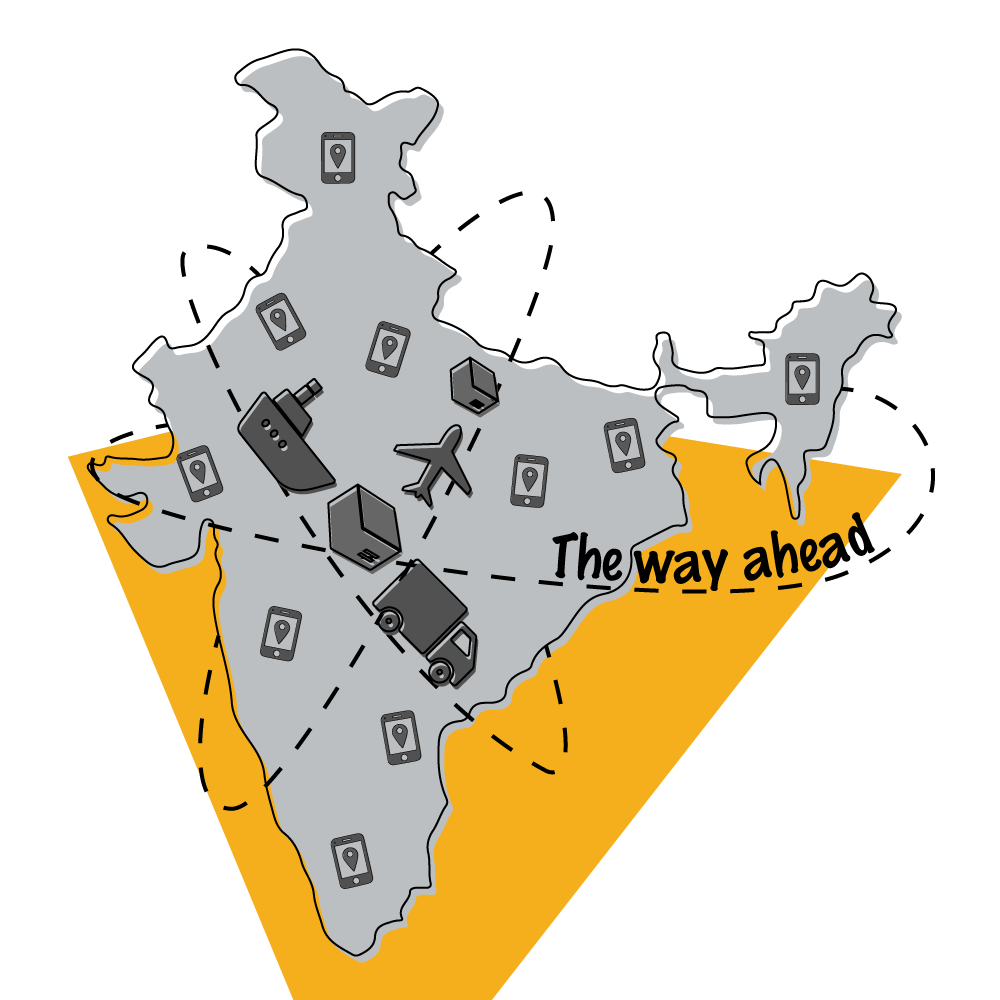National Logistics Policy 2022

The latest
In the third week of September 2022, the Prime minister unveiled the National Logistics Policy (NLP).
Logistics – the Basics
Simply put, logistics is a broad term used for moving and co-ordinating resources – people, machinery, raw material etc from one place to another. This is an intangible yet definite part of any business or trade.
Typically, logistics contains the following aspects –
- Procurement, manufacturing and sale
- Storage including warehousing
- Material management (Packaging, inventory etc)
- Transport
- Information and control
Often, supply chain and logistics are used interchangeably. In reality, logistics is part of supply chain management. An effective and efficient logistics system in any sector or business ensures delivery of goods or services in a timely and cost-effective manner to client.
Objective of NLP 2022
- Reduce cost of logistics in India and make it comparable to global standards by the year 2030.
- To make India one of the top 25 countries in the Logistics Performance Index ranking by the year 2030.
- To create an efficient logistics ecosystem by leveraging data driven decision support system.
Highlights of NLP 2022
A comprehensive logistic action plan (CLAP) is to be put in place. At the core of which are:
- Integrated Digital Logistics System: The NLP aims to develop a unified integrated system of logistics and link multiple data sources. This will enable efficient use across sectors by logistics stakeholders.
- Standardization of physical assets and benchmarking service quality standards: By standardizing physical assets and setting a benchmark of quality for services, enhance interoperability, reduce handling risks. The aim – enhance ease of doing business.
- Logistics human resource development and capacity building: Create an overarching (all embracing) logistic human resource strategy and under its principles, enable ministries to develop action plans to address issues of skill development and internal capacity in relevant sector.
- State engagement: Provide support for development of State/ City level logistics strategies. Set up institutional framework to take action at State / City level. Monitor and measure action by States and rank them.
- Export – Import Logistics: To address procedural and infrastructural gaps in India’s EXIM logistics connectivity and create a reliable and streamlined cross border logistics network for facilitation of trade, improved trade competitiveness and greater integration of India with regional and global value chains.
- Service improvement framework: Improving regulatory aspects of logistics to make seamless, logistics between various sectors. To standardize regulations by making them less cumbersome in terms of documentation, processing and liabilities.
- Sectoral plan for efficient logistics: development of sector wise plans for efficient logistics based on principles of interoperability, resilience, sustainability and innovation. Such plans shall specifically address issues relating to infrastructure, processes, digital development and regulatory aspects of each sector. It will boost cross sectoral co-operation and reduce duplication of effort.
- Facilitating development of Logistics parks: logistics parks including but not limited to Multi modal logistics parks, air freight stations, cargo terminals are hubs for intermediary activities such as storage, handling, transport etc. The policy will draft framework guidelines to develop such logistics parks and encouraging private investment in them. Further, a network of logistics parks will be created and mapped on the government logistics portal for enhanced visibility, optimum utilization, and better last mile connectivity.
The Way Ahead
Presently, India is ranked in the 44th position in the logistics performance index. This is due to its logistics cost – about 14% of the country’s GDP is spent on logistics. In sharp contrast, countries such as Japan and China spend only about 9%. As a result, India is losing its competitive edge of its domestic goods in international markets. Hence there is need for putting in place an integrated unified logistics structure / platform. The NLP 2022 is a step further in making India self-reliant and consequently lesser dependence on the rest of the world. Then, India will not be seen as a developing country. It will be seen as an emerging superpower. The National Logistics Policy 2022 is a step towards that.
For full text of Bill:
https://dpiit.gov.in/sites/default/files/eBook_LogisticPolicy_v3_19September2022_1.pdf

